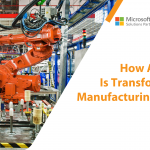Intech Systems
December 15th, 2018
5 misconceptions and facts about IoT in manufacturing
Digital transformation is happening in every part of businesses, especially manufacturing. Factories are no longer aloof from the other business...











